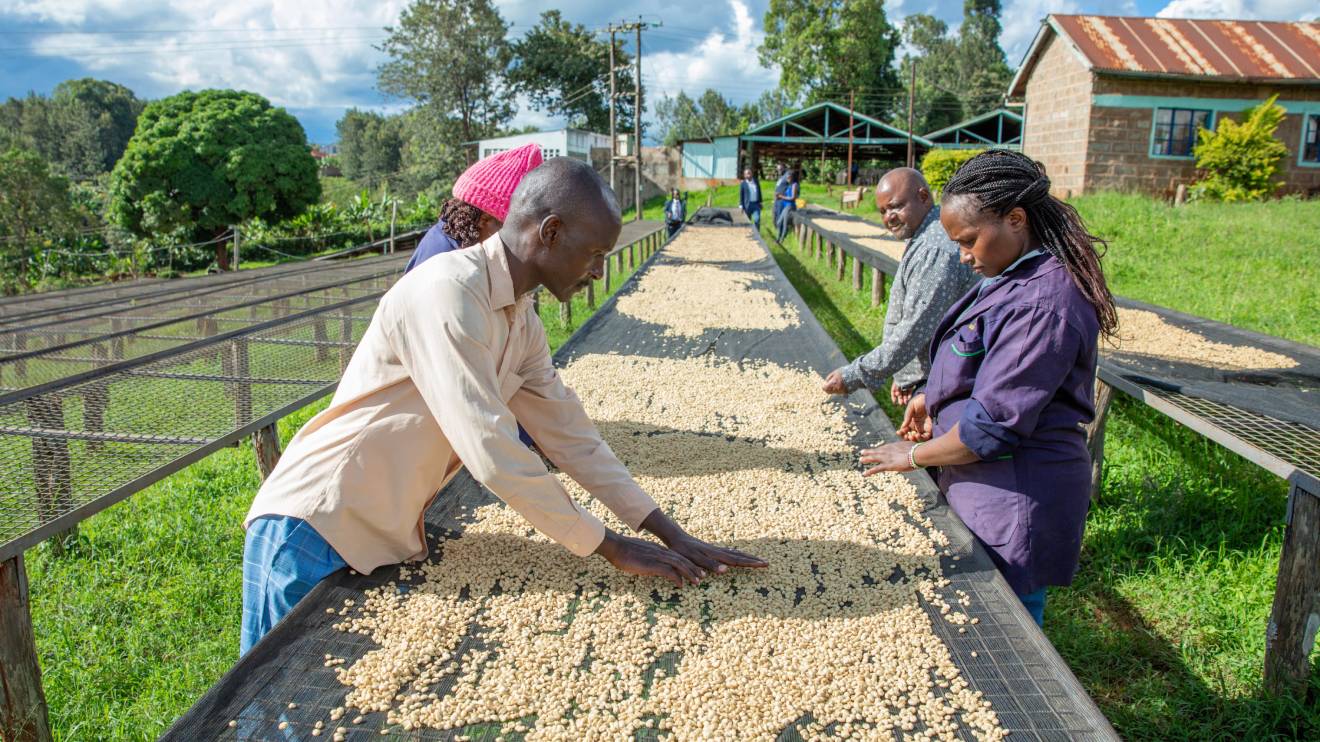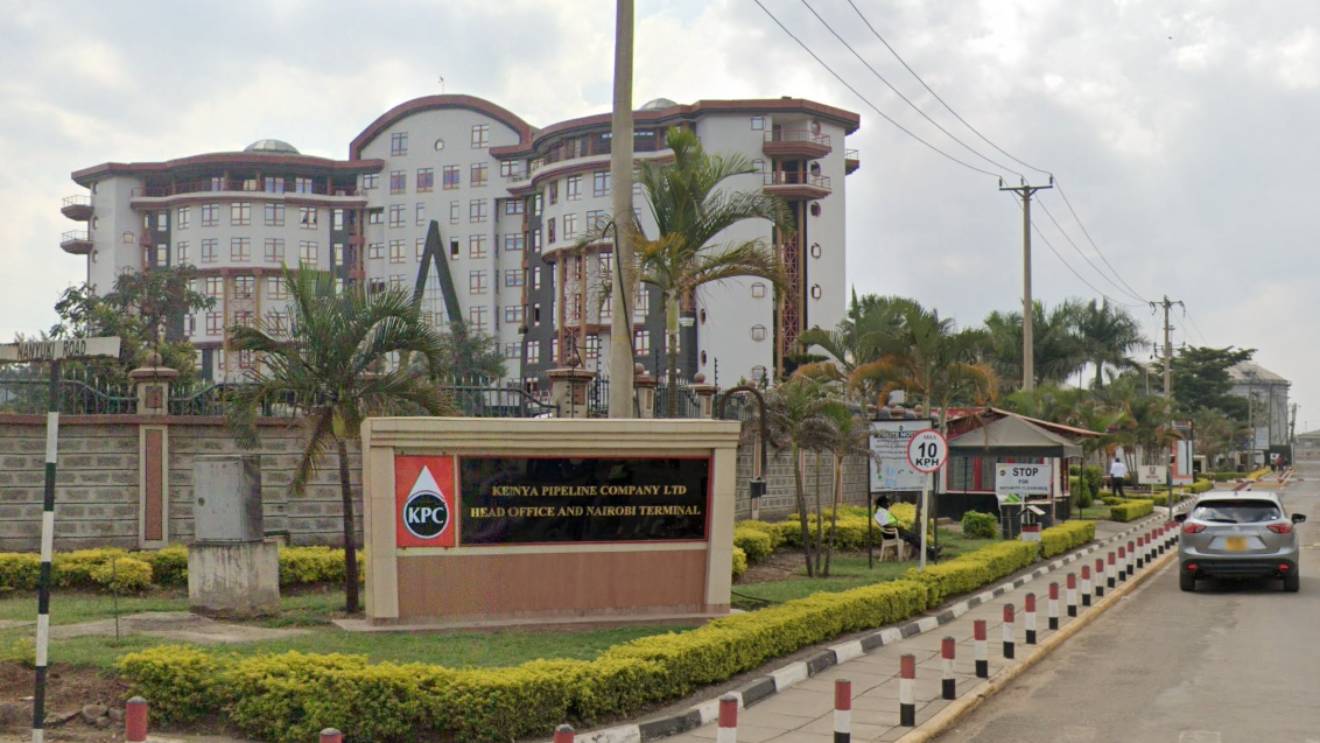Coffee growers in Kirinyaga are reaping the benefits of improved policies and direct market access, with several factories confirming cherry payouts of up to Sh145.10 per kilogramme for the 2024/2025 season—the highest rate yet declared.
Out of 75 wet mills in the county, 27 have already announced rates ranging between Sh100 and Sh145 per kilogramme, signalling a strong return for thousands of smallholder farmers.
Gacami Coffee Factory, operating under the Baragwi Farmers Cooperative Society, leads with Sh145.10 per kilogramme, trailed closely by Karumandi (Sh144.30), Mukure (Sh144.25), Mucagara (Sh143.80), Kii (Sh142.35), Guama (Sh141.80), Karimikui (Sh141.13), Kiang’ombe (Sh141.05), Kiangoi (Sh140.51), and Nyanja (Sh140.50).
The payout windfall has been linked to a blend of strategic support from the county and national governments, including subsidised fertiliser, improved extension services, and new marketing channels.
Farmers are now able to sell their beans directly to buyers through the Nairobi Coffee Exchange, bypassing middlemen and boosting profits.
Read More
Central to these developments is the Kirinyaga Slopes Coffee Brokerage Company Limited, an entity established by 14 cooperative societies with backing from the county government. Licensed by the Capital Markets Authority, it now serves as an authorised broker, effectively streamlining the sales process.
Governor Anne Waiguru, under whose administration the reforms have taken shape, said her government’s initiatives are producing real results for coffee farmers.
“Our coffee farmers are beginning to enjoy the fruits of their labour, with impressive cherry payouts this season. Our county-level interventions, from extension services to cooperative strengthening, together with national government support on coffee reforms and subsidised farm inputs, are delivering real impact. When we work together, the farmer wins,” she said.
At the grassroots, farmers and cooperative leaders are echoing this optimism.
Joyce Wanjiku, Chairperson of Rungeto Farmers Cooperative Society, cited better agronomic practices and timely farm inputs as key to the improved earnings.
“I am very pleased that farmers have received better payout, this is a clear indication that our hardworking farmers are finally being rewarded. The direct sale of coffee at the auction initiative spearheaded by Governor Anne Waiguru has given us a greater say in sale of our coffee,” she said.
Baragwi Farmers Cooperative Society manager Cyrus Chomba attributed their success to better bean quality, cost-saving innovations and member commitment.
“As a cooperative we have also been able to reduce on the cost of processing the bean having installed solar dryers that have also helped use in early delivery of the produce to the miller,” he said. He also commended the County’s last-mile fertiliser initiative, which has boosted both yields and earnings.
Gacami Coffee Factory Director Simon Muriithi underscored the benefits of agricultural training and logistical support.
“The county government, through Baragwi Cooperative, has helped us in storing our produce, thus minimizing post-harvest losses. Additionally, they provided subsidized fertilizer in a timely manner, which was crucial,” he said.
To date, the county has transported subsidised fertiliser to 28 coffee factories affiliated with 14 registered cooperatives. So far, five cooperatives—Baragwi, Kabare, Rungeto, Mwirua, and New Ngariama—have announced their payout figures.
Kirinyaga’s coffee industry produces an average of 40,000 tonnes annually, generating approximately Sh2.8 billion in earnings for farmers.
This year’s payout has re-energised hopes for the crop’s revival, with many growers expressing renewed confidence.
“I am extremely grateful this time because our cooperative, under Baragwi, has achieved an impressive payout of Sh145.10 per kilogram, one of the highest. We are hopeful this trend will continue,” said Josphat Gachoki of Gacami Factory.
Lydiah Wanjira, a farmer with Rungeto Cooperative, added: “We urge the county government to keep supporting us with essential inputs and resources. We also appreciate the continued knowledge we are receiving through county-appointed agronomists. Having access to this training is helping us adopt new techniques that make coffee farming more profitable.”
Fellow Rungeto member David Nyaga also expressed optimism: “This year’s payout has been very good, and we are hopeful that the prices will continue to rise. The cooperative’s management, together with the county government, has been instrumental, particularly in the provision of inputs, which has led to better harvests.”
As the cherry season progresses, the county’s growers remain watchful—but hopeful—that this upward trend in prices and earnings will mark a new era for Kirinyaga coffee.


 (1)-1755468548.jpg)





